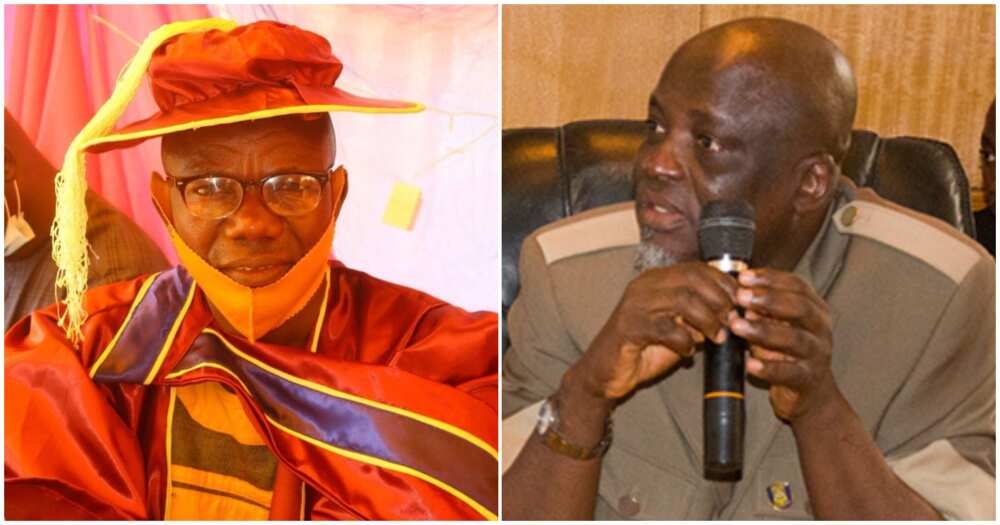2023/2024 Admissions: Top Educator Speaks on What JAMB Should Set as Cut-off Mark
- Prince Adesegun Ogungbayi, a top educator in Lagos state, has offered counsel to the Joint Admissions and Matriculation Board (JAMB) concerning the 'acceptable' minimum admissible score to be applied in all admissions
- Ogungbayi demanded that universities show more empathy to the teeming young Nigerians seeking admission
- Prince Ogungbayi stated that it is not right that a UTME candidate scores 200+, and he or she is overlooked when admissions are offered
Shomolu, Lagos state - Prince AbdulMujeeb Adesegun Ogungbayi, the board chairman of MIMS Educational Services, on Friday, June 23, said it is unfair that candidates of the Joint Admissions and Matriculation Board (JAMB) who score 200 and above in their Unified Tertiary Matriculation Examination (UTME) often struggle to secure admission into Nigerian schools.
Speaking to Legit.ng, Ogungbayi said that when cut-off marks are set, “JAMB and authorities of higher institutes of learning need to ensure that the rules are strictly implemented”.

Source: Facebook
JAMB cut-off mark: 'What tertiary institutions must do', Prince Ogungbayi
Ogungbayi expressed his solidarity with the existing cut-off mark of 100 and above for colleges of education; 100 and above for polytechnics; private universities at 140 and above; and public universities at 160 and above.
PAY ATTENTION: Join Legit.ng Telegram channel! Never miss important updates!
His words:
“As 1,595,779 candidates nationwide expect the 2023 minimum cut-off marks, I think the policy-makers led by Professor Ishaq Oloyede need to think twice before fixing what will end the struggle of the innocent students in respect of their university education.
“It is on record that annually, JAMB set cut-off marks for the universities, polytechnics and colleges of education to a minimum of 100 marks, yet we have been seeing candidates with above 180, 200, and above not securing admission despite the fact that tertiary institutions' heads are always in attendance in the strategic meetings where the decisions are made.
“For me, I stand on the existing cut-off mark of 100 and above for colleges of education, 100 and above for polytechnics, private universities at 140 and above, and public universities at 160 and above.
“However, both JAMB and authorities of institutions need to ensure that the rules are strictly implemented.”
The MIMS board chairman who is the project coordinator of the Academic Excellence Initiative (AEI) wants JAMB and universities to be fair and empathetic.
He said:
“Going by records, the fixed cut-off marks only qualify candidates for post-JAMB but do not guarantee admission for the candidates. That’s hypocrisy.
“To this end, I am appealing to the higher institution authorities to come to the level of the innocent students who keep scoring above 200 in JAMB without securing admission.
“Universities that most candidates choose as the first choice should be able to suggest the next lower course for the candidates on time. They need to see all students as their biological children.”

Read also
“The buildings will be demolished”: Lagos govt marks 17 ‘distressed’ structure at Alaba Market
2023 admissions: JAMB gives update on cut-off marks for university, polytechnic and college of education
Earlier, Legit.ng reported that JAMB revealed the date it will decide the cut-off for 2023 admissions into universities, polytechnics, and other tertiary institutions in the country.
The decision will be made at a meeting of all heads of tertiary institutions and regulatory bodies, such as the National Universities Commission (NUC), the National Board for Technical Education, and the National Commission for Colleges of Education, among others.
Source: Legit.ng


